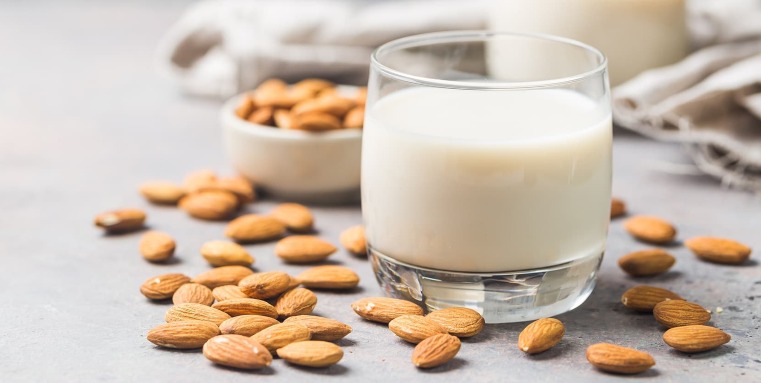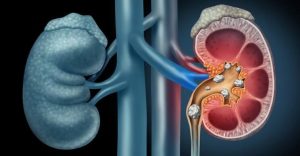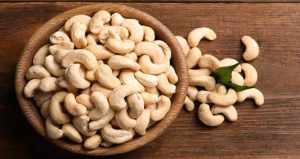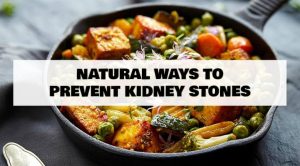Almond milk is a good alternative for those who wish to avoid dairy milk, such as vegans and people with lactose intolerance.
— However, if consumed in excess, almond milk may increase the risk of developing calcium-oxalate kidney stones in susceptible individuals — experts warn!
Why is Almond Milk Linked to Kidney Stones?
Oxalate — a naturally-occurring compound — is the reason why excessive consumption of almond milk is linked to calcium-oxalate kidney stones. Oxalate is found in almost all plants, however, almonds (therefore almond milk) are high in this compound.
Consistently ingesting high amounts of oxalate can increase urinary oxalate levels. This is especially true for those who have trouble metabolizing oxalate due to certain reasons, such as inflammatory bowel disease. Too much oxalate in the urine is a major risk factor for calcium-oxalate stones because oxalate can stick to calcium in the kidneys and form calcium-oxalate stones.
People who are predisposed to calcium oxalate stones are usually advised to limit the intake of foods high in oxalate and drink plenty of water as water helps dilute the substances in urine that lead to stones.
Almonds are a high source of oxalate. But, what might be more important is that according to some studies, almonds contain higher levels of intestinal soluble oxalate than many other plants {1, 2, 3}.
Since almond milk is made from whole almonds it is also associated with kidney stones. Especially homemade almond milk can be very high in oxalate as the number of almonds used to make homemade almond milk can be higher than the number of almonds used to make store-bought almond milk.
— Since almond milk (especially homemade) is usually rich in oxalate, those who are prone to calcium-oxalate kidney stones shouldn’t consume it in excessive amounts, — points out MedicalNewsToday.
Please note that calcium oxalate stones are the most common type, accounting for about 75% of all stones {4, 5, 6, 7}.
Studies on Almond Milk and Kidney Stones
As the consumption of plant-based milk alternatives has risen significantly in the last decade, researchers carried out a study to compare the concentrations of ingredients important for kidney stones in popular plant-based milk alternatives.
The results showed that almond milk has the highest oxalate concentration. The researchers concluded that almond milk, along with cashew milk, has more potential stone risk factors compared to other milk alternatives.
A case study, published in the Journal of Pediatrics, described 3 young children presenting with certain signs and symptoms associated with kidney stones, including blood in the urine and painful urination. Urine tests showed that all 3 had hyperoxaluria, meaning, too much oxalate in the urine. What these children had in common was that all of them were consuming excessive amounts of almond milk on a regular basis.
After being diagnosed with hyperoxaluria, the parents were told to increase their children’s fluid intake and avoid almond milk consumption, among other dietary suggestions. All complied with the given dietary guidelines and avoided almond milk products. The result: all symptoms and signs related to kidney stones resolved and didn’t recur after a year of follow-up.
Two of these 3 children had first-degree relatives with kidney stones. Besides, young children can be susceptible to inadequate water consumption. According to the researchers, these two factors may have contributed to the children’s symptoms along with excessive almond milk ingestion.
The researchers indicated that the results obtained in this study provide a strong link between the consumption of almond milk and hyperoxaluria (too much oxalate in the urine), which is a primary risk factor for calcium oxalate kidney stones.
Mayo Clinic’s Answer
A patient — who seems to think that he/she has developed calcium oxalate stones several times due to drinking cow’s milk — asked the Mayo Clinic whether replacing cow’s milk with almond milk is a good idea to prevent kidney stones.
The brief version of the answer given by the Mayo Clinic to the patients is: Although almond milk and other types of plant-based milk contain calcium, they also contain oxalate. People who are prone to calcium oxalate stones are cautioned to avoid oxalate-rich foods. Since cow’s milk doesn’t contain oxalate and has the calcium you need, cow’s milk is a good choice for you.
Almond Milk & Calcium Oxalate Risk Factors
Certain factors may increase your oxalate absorption, thus raising your chance of developing calcium oxalate stones. So if you constantly consume excessive almond milk or other foods high in oxalate when you have one or more of the below-given risk factors, you may be more likely to develop calcium oxalate crystals in your kidneys.
- Chrohn’s: Studies suggest that people with Crohn’s disease are more likely to form kidney stones because their nutrient absorption is altered {8, 9, 10}.
- Weight Loss Surgery: Scientific studies show that gastric bypass surgery (a type of weight-loss surgery) can raise urinary oxalate levels {11, 12, 13, 14}.
- Long-term Antibiotic Use: Researchers discovered that long-term use of certain antibiotics can wipe out the oxalate-degrading bacteria called Oxalobacter Formigenes in the intestines and thus raise the risk of calcium oxalate stones {15, 16, 17}.
- Vitamin C Supplements: Ingesting more than 500 mg of vitamin C daily is associated with an increased risk of calcium oxalate stones because at high doses vitamin C is metabolised into oxalate in the body {18, 19, 20}.
- Being a Super Absorber: Researchers suggest that some people genetically absorb more dietary oxalate than others, which makes them more likely to develop calcium oxalate stones. These people are called “Super absorbers” {21, 22, 23, 24}.
Should You Avoid Almond Milk to Prevent Kidney Stones?
Reducing the intake of high oxalate foods may be beneficial for people who are susceptible to calcium oxalate stones, points out the National Kidney Foundation. So if you are predisposed to calcium oxalate stones, talk to your doctor or dietitian about your diet.
Just keep in mind that almond milk has the highest level of oxalate among all types of plant-based milk. Therefore, limiting its consumption or replacing it with low-oxalate ones such as coconut milk or oat milk can make a difference.
As for children; “Children who consume almond milk should have generous hydration to prevent calcium oxalate crystals,” noted F. Bruder Stapleton, a board-certified paediatrician, chief academic officer and senior vice president of Seattle Children’s Hospital..
The Bottom Line
Almond milk, especially enriched almond milk, may improve your skin, heart and bone health. This plant-based milk may even help you sleep better.
However, as we discussed in this article, excessive consumption of almond milk may also increase your risk of forming kidney stones because it is usually high in oxalate.
If you are prone to calcium oxalate kidney stones, consider talking to your doctor or dietitian regarding your intake of oxalate-rich foods, such as almonds (almond products), spinach and rhubarb.




